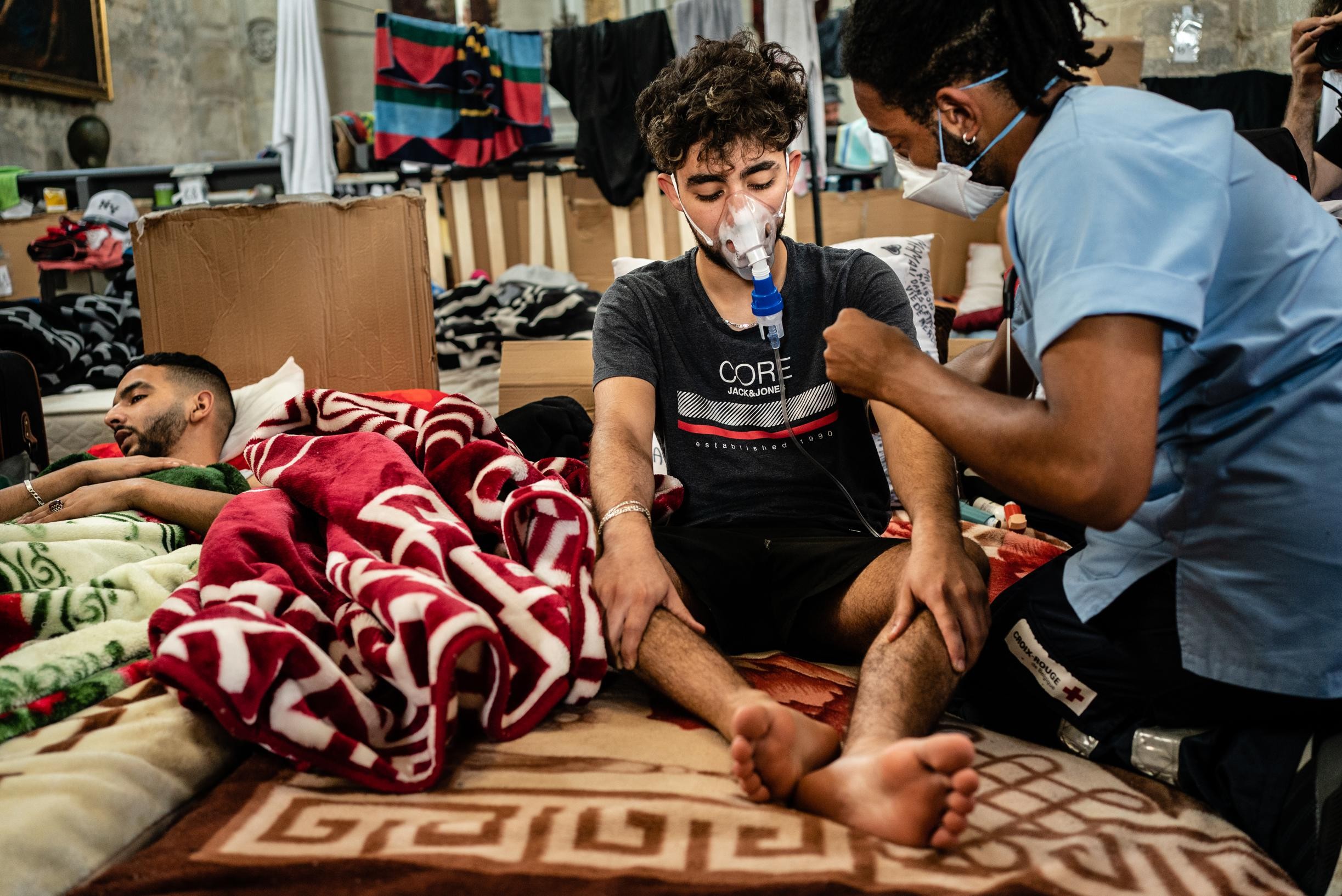© Kristof Vadino
–
The church factory of the Beguinage Church has decided that the occupation of the church by the Union des Sans-papier pour la Régularisation (USPR) must come to an end. House of Compassion, the organization of priest Daniel Alliët, says in a press release that it understands and supports the decision, but at the same time notes that the end of the occupation “by no means means the end of our solidarity with undocumented migrants”.
–
gjsSource: BELGIAN
—
From a humanitarian point of view – especially in winter – the church building is not suitable for reception and the situation in the church is no longer safe, according to the church factory. As ultimately responsible for the use of the church, she will now take the necessary legal action. This puts an end to the occupation that started at the end of January last year with about a hundred people. “These were undocumented workers who have been working here for many years, usually in severe situations of exploitation,” Alliët writes on the House of Compassion site.
Engagement continues
The occupation was tolerated because the organization recognized their cry for dignity. In addition, the House of Compassion believed that the activists “may have the merit of putting the inhumane situation in which they live back on the political agenda”.
The priest points out that two occupations had already ended before, “because it was no longer safe or opportune for political action. Our commitment, however, continued. That will also be the case now. We will continue to stand up for the rights of undocumented migrants.”
Find solution
In recent weeks, the action has been “reduced to mere reception”, it sounds. Today, about twenty people still spend the night in the church, mainly people who have lost their home in the past year. Most of the activists who took part in the start of the occupation have since returned to their homes, and thus “also back to humiliating exploitative situations”. A solution is being sought for the twenty survivors.
In Germany, Alliët now sees an example of how the reception of undocumented migrants can be done. “The country that State Secretary for Asylum and Migration Sammy Mahdi (CD&V) sometimes refers to as a guide country has already made a clear turn with her new government today,” according to the press release. “Whoever stays there for five years will have one year to find work or start training in a shortage profession. (…) Why shouldn’t this also be possible in our Belgium?”
—


